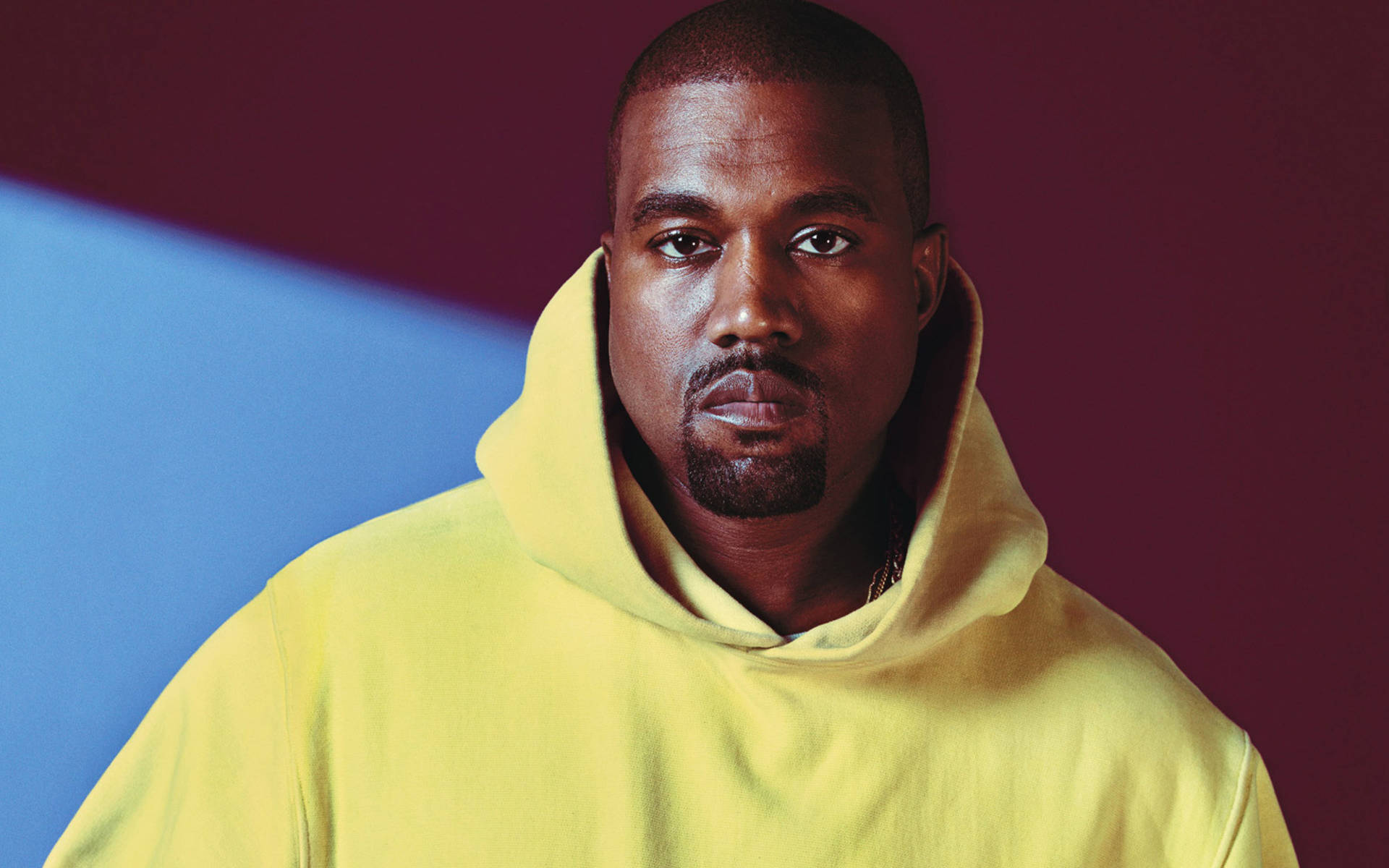
In a world brimming with fleeting fame and specialized careers, a rare individual emerges who consistently defies expectations, seamlessly transitioning between diverse fields while maintaining authenticity and impact. Lonnie Rashid Lynn, better known to the world as Common, is precisely this kind of anomaly. From his early days as a rapper known as Common Sense to an Academy Award-winning actor, a respected author, and a tireless activist, his journey offers a compelling case study in building a career that is not just successful, but profoundly meaningful and adaptable.
His trajectory isn’t just a tale of inherent talent; it’s a testament to strategic evolution, unwavering dedication, and a deep understanding of self. We often wonder how some individuals manage to excel in multiple domains without diluting their core identity or losing their creative spark. Common’s path provides a practical roadmap, showcasing how a blend of passion, adaptability, and a commitment to personal growth can open doors far beyond one’s initial calling and lead to sustained relevance.
Join us as we explore the foundational stages of Common’s remarkable career. We’ll delve into the pivotal moments, the strategic decisions, and the personal philosophies that shaped him from a young Chicago rapper into a multifaceted cultural icon. Prepare to uncover the ‘why’ behind his ascent, gaining practical wisdom that you can apply to your own pursuit of purpose and versatile achievement.

1. **Early Life and Educational Roots: Building a Resilient Foundation**The blueprint for Common’s diverse talents begins with a deep dive into his foundational experiences in Chicago. Born Lonnie Rashid Lynn on March 13, 1972, in the city’s Hyde Park neighborhood, he was shaped by a unique familial backdrop. His mother, Mahalia Ann Hines, served as an educator and a former principal of John Hope College Preparatory High School, instilling a strong sense of discipline and intellectual curiosity. Meanwhile, his father, Lonnie Lynn, was a former ABA basketball player who transitioned into a youth counselor, offering a different lens on mentorship and community engagement.
This early environment, particularly in the Calumet Heights neighborhood where he was raised, presented its own set of challenges and lessons. Lynn’s father battled drug and alcohol addictions, leading him to leave the family when Common was young. This experience undoubtedly shaped his perspective on struggle and perseverance. Despite the divorce when Lynn was six, his father remained an active presence in his life, even helping him secure a job with the Chicago Bulls as a teenager, demonstrating the importance of maintaining connections through adversity.
Lynn’s educational pursuits further solidified his base. He attended Florida A&M University (FAMU) for two years on a scholarship, majoring in business administration within the School of Business and Industry. This academic background, focusing on practical skills, likely contributed to his later ability to navigate the complexities of the music and entertainment industries, preparing him for the business side of his artistic endeavors. It’s a clear example of how a broad education can empower a creative career.
Beyond his formal education, Lynn’s personal connections also played a role. He shares his first name with generations of men in his family, and to his close circle, he is known by his middle name, Rashid. His godfather, basketball player Spencer Haywood, was a teammate of his father on the Denver Rockets. These personal details highlight a network of influences that contributed to his unique perspective and strong identity, offering a lesson in drawing strength from both family heritage and personal relationships.
2. **Formative Years in Hip-Hop: Common’s Genesis (1987-1996): Laying the Groundwork**How did Common lay the groundwork for a lasting career in a rapidly evolving genre? It started with an early immersion in the craft. Lynn began rapping in the late 1980s while still a student at Luther High School South in Chicago. He, along with two friends, formed the rap trio C.D.R., gaining valuable stage experience by opening for prominent acts such as N.W.A and Big Daddy Kane. This early exposure to the industry’s titans undoubtedly honed his performance skills and ambition.
By 1991, C.D.R. dissolved, paving the way for Lynn to embark on a solo career under the stage name Common Sense. His talent quickly caught the attention of industry insiders, earning him a feature in The Source magazine’s coveted Unsigned Hype column. This recognition translated into his solo debut in 1992 with the single “Take It EZ,” followed by his first album, “Can I Borrow a Dollar?”, released through the independent label Relativity Records. This move demonstrated his readiness to take calculated risks to advance his career.
The release of his second album, “Resurrection,” in 1994 marked a significant turning point, earning him critical acclaim that extended far beyond the Chicago music scene. The album performed relatively well commercially and garnered a strong positive reaction among alternative and underground hip-hop fans. Notably, “Resurrection” was produced almost entirely by his long-time partner, No I.D., who would later become a mentor to a young Kanye West. This collaboration highlights the enduring power of consistent creative partnerships and their far-reaching influence.
Common Sense also strategically engaged in projects with broader social impact. In 1996, he appeared on the Red Hot Organization’s compilation CD, “America Is Dying Slowly (A.I.D.S.),” alongside a host of prominent hip-hop artists like Biz Markie and Wu-Tang Clan. This CD, aimed at raising awareness of the HIV/AIDS epidemic among African American men, was lauded as “a masterpiece” by The Source magazine. His later contribution to the Red Hot Organization’s Fela Kuti tribute album in 2002 further cemented his commitment to using his platform for positive change.
However, this period also brought significant challenges, demonstrating the need for adaptability in the face of conflict. The song “I Used to Love H.E.R.” from “Resurrection,” which criticized the direction hip-hop was taking through a metaphor of a woman, inadvertently ignited a feud with West Coast rap group Westside Connection. The dispute escalated with diss tracks, leading to a meeting with Louis Farrakhan to resolve their differences. Furthermore, a reggae band with the same name, Common Sense, sued him, forcing him to shorten his moniker to simply Common. This episode underscores the practical necessity of navigating legal and interpersonal conflicts while maintaining one’s artistic path.

3. **Navigating Identity: The “One Day It’ll All Make Sense” Era (1996-1999): Growth Through Reflection**
Following a period of artistic development and personal reflection, Common released his third album, “One Day It’ll All Make Sense,” in September 1997, after a two-year production cycle. This album marked a strategic departure, making a point of eschewing any gangsterism in response to questions about his musical integrity. The project featured an impressive roster of collaborators, including Lauryn Hill, De La Soul, Q-Tip, and Questlove, who would later become a fellow member of the Soulquarians. This phase highlights the importance of artistic evolution and conscious thematic choices.
Critically acclaimed for its depth and introspection, the album’s success led to a significant major label contract with MCA Records. However, the most profound influence on this period was not just professional, but deeply personal: the birth of his first child, daughter Omoye Assata Lynn, shortly after the album’s release. This life event profoundly impacted Common, sparking a spiritual and mental awakening that fueled his musical growth and his sense of responsibility as an artist and individual.
This personal transformation is vividly documented by hip-hop journalist Raquel Cepeda in the album’s liner notes. She highlights the genesis of “Retrospect for Life,” a song produced by James Poyser and No I.D. featuring Lauryn Hill, which offers a poignant male perspective on abortion. Cepeda quotes Common reflecting on the song, stating, “when I listen to the song now, I think about how precious her (Omoye’s) life is.” This demonstrates how profound personal experiences can be channeled into powerful, relatable art.
Throughout “One Day It’ll All Make Sense,” Common weaves themes of family ethics, decorating the album sleeve with old family photos that illustrate his childhood. He also includes a quote from 1 Corinthians 13:11, which succinctly summarizes his path to manhood: “When I was a child, I talked like a child, I thought like a child, I reasoned like a child. When I became a man, I put childish ways behind me.” This album served as a public declaration of his maturity and his commitment to a more responsible artistic and personal identity.

4. **The Soulquarians Collective: A Creative Nexus (1999-2003): Cultivating Collaborative Excellence**
Recognizing the power of collaboration and a change of scenery for creative renewal, Common made a pivotal decision after “One Day It’ll All Make Sense.” He signed a major label record deal with MCA Records and strategically relocated from Chicago to New York City in 1999. This move positioned him squarely within a vibrant artistic community, leading him to record almost exclusively with a loose collective of musicians and artists known as the “Soulquarians,” spearheaded by the central figure Questlove. This period exemplifies the benefit of immersing oneself in a supportive and innovative creative ecosystem.
His fourth album, “Like Water for Chocolate,” released in 2000, was a testament to this new collaborative energy. It was met with mass critical acclaim and became a considerable commercial breakthrough for Common, earning him his first gold record. This success significantly expanded his fanbase among critics and listeners alike. Executive produced by Questlove and featuring significant contributions by J Dilla, the album showcases the synergy that can arise from working with a highly talented and like-minded team.
The chemistry between Common and J Dilla, both hailing from the Great Lakes region (Chicago and Detroit), was particularly noteworthy. Both became integral members of the Soulquarians collective and collaborated on numerous projects. Their shared track, “Thelonius,” even appeared on both Slum Village’s album “Fantastic, Vol. 2” and Common’s “Like Water for Chocolate,” highlighting their deep creative bond. As Dilla’s health declined due to Lupus Nephritis, Common even moved with him to Los Angeles as a roommate, illustrating the profound personal connections forged through artistic collaboration.
“Like Water for Chocolate” also saw Common strategically exploring themes and musical textures uncommon for a hip-hop record at the time. Tracks like “Time Travelin’ (A Tribute To Fela)” paid homage to Nigerian music legend and political activist Fela Kuti, showcasing his willingness to push lyrical and sonic boundaries. The album’s most popular single, “The Light,” earned a Grammy Award nomination, solidifying his status as a commercially viable yet critically respected artist.
However, his next project, “Electric Circus” (2002), offered a lesson in the risks of ambitious experimentation. While highly anticipated and praised by many critics for its visionary scope, it did not achieve the commercial success of its predecessor, selling under 300,000 copies. The album’s eclectic fusion of hip hop, pop, rock, electronic, and neo-soul divided critics; some lauded its ambition, while others felt Common had strayed too far from his established sound. This period, his second and last album for MCA before its absorption into Geffen Records, underscores the delicate balance between artistic innovation and market reception, even as it continued to feature collaborations with fellow Soulquarians like Bilal.

5. **Kanye West and the GOOD Music Chapter (2004-2011): Strategic Re-Alignment and Mainstream Ascendance**
A pivotal career move occurred in early 2004 when Common made an appearance on fellow Chicagoan Kanye West’s multi-platinum debut album, “The College Dropout,” on the track “Get Em High.” This guest spot heralded a new chapter as Common announced his signing to West’s then-newfound label, GOOD Music. West, a longtime admirer of Common, even engaged in a friendly on-air MC battle, playfully jabbing at his lyrical idol for “going soft” and his fashion choices. This strategic alliance leveraged West’s rising star power for Common’s next phase.
The collaboration bore fruit with Common’s next album, “Be,” released in May 2005. Almost entirely produced by Kanye West, with additional contributions from Common’s longtime collaborator James Yancey (J Dilla), the album performed exceptionally well. Boosted by Kanye’s heavy involvement and strong singles like “The Corner” and “Go,” “Be” earned Common the second gold record of his career, with sales reaching around 800,000 copies. It received near-perfect ratings from publications like The Source (4.5 mics), XXL (“XXL”), and AllHipHop (4 stars), and was nominated for four Grammy Awards in 2006, marking a significant mainstream resurgence.
However, this period was not without its controversies, highlighting the challenges of public interpretation. Following “Be’s” release, several mixed-race artists from the UK hip-hop scene took exception to Common’s comments about interracial relationships on the song “Real People.” Artists like Yungun, Doc Brown, and Rising Son responded with their own track, “Dear Common (The Corner Dub).” Common, while aware of the track, chose not to retaliate in song, demonstrating a strategic decision to avoid further escalation.
His seventh LP, “Finding Forever,” released on July 31, 2007, continued his successful partnership with Kanye West, alongside other notable producers such as Will.i.am, Devo Springsteen, and Karriem Riggins. The album also featured the only J Dilla-produced track, “So Far To Go,” a poignant reminder of their bond. Guest spots from artists like Dwele, Bilal, D’Angelo, and UK pop starlet Lily Allen diversified its appeal, showcasing Common’s ability to attract top-tier talent.
While West had boldly predicted “Finding Forever” would win the 2008 Grammy Award for Best Rap Album (it lost to West’s “Graduation”), Common still achieved a significant victory, winning his second Grammy for “Southside,” which took home Best Rap Performance by Duo or Group. To promote the album, Common performed a free concert in Santa Monica, California, where he explained the title “Finding Forever” represented his quest for an eternal place in hip-hop and his desire to be a lifelong artist. The album debuted at No. 1 on the national Billboard 200 charts, cementing his mainstream success.
This era also saw other strategic business moves, including a deal with Zune mp3 players. In 2008, Common’s estimated earnings of $12 million placed him among the highest-grossing hip-hop artists, tied with Eminem and Akon. This demonstrates how a strong musical foundation, coupled with strategic partnerships and brand affiliations, can significantly elevate an artist’s commercial standing and influence within the industry.
His eighth album, “Universal Mind Control,” originally slated for release under the name “Invincible Summer,” faced multiple delays due to his burgeoning acting career, specifically his filming commitments for “Wanted.” The album’s eponymous lead single, featuring and produced by Pharrell, was released in July 2008. Although it garnered Grammy nominations for Best Rap Performance by a Duo or Group and Best Rap Album, the album was met with a critical decline, indicating the challenges of balancing multiple high-profile careers and managing audience expectations for artistic direction. This album served as his final release with GOOD Music, signaling another impending shift in his independent journey.
6. **Independent Vision: Think Common Entertainment and Beyond (2011-Present Music Career): Sustained Evolution**
Following his departure from GOOD Music, Common entered a new phase of independence and strategic collaboration, forming his label imprint, Think Common Entertainment, in 2011. This move allowed him greater creative control and business autonomy, entering a joint venture with Warner Bros. Records for his ninth album, “The Dreamer/The Believer.” Initially, American producer No I.D. stated that he and Kanye West would produce the album, but by July 2011, it was announced that No I.D. would be the sole producer. This return to a core collaborator signified a focus on artistic integrity and a trusted sound.
“The Dreamer/The Believer” was preceded by singles like “Ghetto Dreams” and “Blue Sky” and released on December 20, 2011. Despite having left GOOD Music earlier that year, Common was still featured on the label’s first compilation album, 2012’s “Cruel Summer,” illustrating his continued amicable relationship and industry presence. His willingness to collaborate extended beyond hip-hop, even featuring as a guest rapper on The Jonas Brothers’ 2009 song, “Don’t Charge Me for the Crime,” demonstrating an openness to diverse artistic ventures.
This period also brought an unexpected, though brief, public conflict. Common released a song titled “Sweet” from “The Dreamer/The Believer,” which included lyrics critical of rappers who sing, though not aimed at Canadian artist Drake specifically. Drake, however, took offense and responded with his own track, “Stay Schemin’.” Common swiftly responded, but commented on the feud in February 2012, saying, “It’s over. But it was all in the art of hip hop. He said some things to me so I had to say some things back… thank God we were able to move forward from it and all is good.” This highlights his maturity in handling industry rivalries with a focus on resolution.
After a relatively quiet 2012, Common began to outline future projects, including an extended play (EP) in January 2013 and his first mixtape in April. By September 2013, he confirmed that his tenth solo studio album would be released in early 2014, with Kanye West and No I.D. contributing to production. This consistent planning and announcement of future work is a key strategy for maintaining audience engagement and industry buzz.
On January 6, 2014, Common announced his tenth studio album would be titled “Nobody’s Smiling,” produced entirely by No I.D. The album’s concept was deeply inspired by his troubled hometown of Chicago, with Common explaining, “We came up with this concept ‘nobody’s smiling.’ It was really a thought that came about because of all the violence in Chicago… It’s really a call to action.” This demonstrates his ongoing commitment to using his art as a platform for social commentary and community engagement, transforming a personal observation into a collective call to action. In June 2014, he signed with Def Jam Recordings and No I.D.’s Artium Records for its release.
His eleventh album, “Black America Again” (2016), released under Def Jam Recordings, garnered widespread critical acclaim. It featured an impressive array of guest appearances, including Stevie Wonder, Bilal, John Legend, and Marsha Ambrosius, with primary production by Karriem Riggins. This album served as his final release on a major label, further showcasing his continued artistic relevance and his ability to attract high-caliber collaborators, even as he considered new distribution models for his work.
Common’s musical innovation continued into the present decade. In 2018, he formed the jazz group August Greene with Karriem Riggins and Robert Glasper, releasing an album through a partnership with Amazon Music. He followed this with his twelfth solo studio album, “Let Love,” in 2019, and then the politically charged “A Beautiful Revolution Pt. 1” (2020) and “Pt. 2” (2021), both primarily produced by Karriem Riggins. Most recently, in 2024, his collaborative album with Pete Rock, “The Auditorium Vol. 1,” earned a Grammy nomination and millions of streams, proving his enduring appeal and constant evolution within the hip-hop landscape and beyond.
7. **From Rhymes to Reels: Common’s Dynamic Acting Debut: Expanding the Creative Canvas**Transitioning from music to acting requires a deliberate and strategic approach, and Common’s entry into the film and television world offers valuable lessons in career diversification. His acting career quietly began with guest appearances on American television sitcoms. In 2003, he appeared on UPN’s “Girlfriends” as Omar, a slam poet, and had a cameo on “One on One” as a drama class instructor named Darius. He also made an appearance on the ABC show “Scrubs.” These early roles allowed him to gain experience and exposure in a new medium.
His big-screen debut arrived in 2006 with the crime film “Smokin’ Aces,” where he played the villainous Mob enforcer Sir Ivy, starring alongside Ryan Reynolds and Alicia Keys. This was quickly followed by a role in the 2007 crime thriller “American Gangster,” sharing the screen with cinematic heavyweights Denzel Washington and Russell Crowe. His appearance in a “Saturday Night Live” sketch in January 2007, alongside his “Aces” co-star Jeremy Piven, further demonstrated his growing comfort and visibility in the acting realm.
Beyond feature films, Common also lent his talent to other visual projects. In 2007, he played the role of Alicia Keys’s boyfriend in the music video for her song “Like You’ll Never See Me Again.” These supplementary roles helped to broaden his appeal and familiarize audiences with his presence beyond the music stage, showcasing how interconnected various entertainment mediums can be for a multifaceted artist.
By 2008, Common’s filmography was rapidly expanding, a testament to his dedication and versatility. He secured a supporting role in the film adaptation of the comic book “Wanted,” appearing alongside Morgan Freeman and Angelina Jolie. That same year, he starred in “Street Kings” with Keanu Reeves, and in 2009, he took on the role of Barnes, John Connor’s lieutenant, in “Terminator Salvation.” These diverse roles in high-profile action films allowed him to demonstrate a range of acting capabilities and build a solid portfolio.
Continuing to diversify his acting repertoire, Common appeared in the 2010 comedy “Date Night” as a corrupt cop opposite Steve Carell and Tina Fey, showcasing his comedic timing. He also took on a leading role in “Just Wright” (2010), playing a basketball player who falls in love with his physical therapist, played by Queen Latifah. In 2011, he was featured as Chino, the husband of Halle Berry’s character, in “New Year’s Eve.” These roles illustrate a strategic progression into different genres and character types, proving his adaptability as a performer.”
8. **Expanding Horizons: Common’s Continued Acting Prowess**Common’s journey into acting wasn’t merely a fleeting experiment; it rapidly evolved into a significant pillar of his multifaceted career, demonstrating a remarkable ability to adapt and excel in new mediums. Following his initial film roles, he embraced the sustained commitment of television, starring as Elam Ferguson in AMC’s critically acclaimed western series ‘Hell on Wheels’ from 2011 to 2014. This role allowed him to embody a complex character, a recently freed slave navigating a challenging world, showcasing his depth as a performer and proving his capacity for long-form storytelling.
His strategic film choices continued to diversify his portfolio, moving beyond the action and drama of his earlier work. In 2013, he took on the role of Agent Evans, an FBI agent, in ‘Now You See Me,’ a clever heist thriller. This was quickly followed by a profoundly impactful role in the 2014 film ‘Selma,’ where he co-starred as civil rights leader James Bevel. This project wasn’t just another acting credit; it was a powerful narrative that resonated deeply with his personal values, ultimately earning him an Academy Award for Best Original Song for ‘Glory,’ which he co-wrote for the film. This exemplifies how an artist can align their professional endeavors with their personal convictions for maximum impact.
Common’s acting career continued to flourish with diverse roles across genres. He played a hitman in ‘Run All Night’ (2015), a gangster named ‘Monster T’ in the DC Extended Universe film ‘Suicide Squad’ (2016), and even showcased his musical theater skills in the NBC TV special ‘The Wiz Live!’ as the Bouncer guarding the Emerald City. He reunited with former rival Ice Cube in ‘Barbershop: The Next Cut’ (2016) and again with Keanu Reeves in ‘John Wick: Chapter 2’ (2017) as the professional hitman/bodyguard Cassian, further cementing his versatility across action and comedy. His talent even extended to voice acting, portraying Kiburi the crocodile in Disney Junior’s ‘The Lion Guard’ from 2017.
Beyond blockbuster films, Common also gravitated towards independent cinema and roles with significant social commentary. In 2018, he delivered a critically acclaimed performance alongside Mary Elizabeth Winstead in Eva Vives’s debut feature ‘All About Nina,’ which debuted at the Tribeca Film Festival. Peter Debruge of Variety specifically lauded his performance as ‘easily the strongest of the half-dozen supporting roles he’s had this year,’ highlighting his growing command of complex characterizations. That same year, he played Rear Admiral John Fisk in the action thriller ‘Hunter Killer’ and portrayed Starr’s uncle Carlos, a black police officer grappling with a police shooting, in the powerful film adaptation of ‘The Hate U Give,’ demonstrating his commitment to stories that provoke thought and reflect societal issues. Most recently, in 2022, he starred in the film ‘Alice,’ and made his Broadway debut in Second Stage Theater’s ‘Between Riverside and Crazy’ in 2023, showcasing his relentless pursuit of new artistic challenges and his commitment to mastering every aspect of performance.
Read more about: Beyond the Mic: 12 Uncommon Truths About Common’s Unforgettable Journey—Number 5 Will Inspire You!
9. **Behind the Scenes: Strategic Ventures in Film Production**Leveraging his expanding presence in Hollywood, Common recognized the strategic advantage of moving beyond acting roles into film production, a move that grants artists greater creative control and business influence. In a pivotal step towards this goal, he signed a significant two-year deal with HBO on October 27, 2015. This agreement was not just a collaboration; it was a foundational opportunity to launch his very own film production company, Freedom Road Productions. This move, a culmination of a stated career goal from a February 2012 interview, allowed him to actively shape narratives and bring new projects to fruition from conception to screen.
Establishing Freedom Road Productions under the HBO umbrella was a masterclass in strategic alignment. It positioned Common to develop content that resonated with his artistic vision and social conscience, using a prestigious platform to amplify his message. This venture wasn’t just about financial gain; it was about expanding his creative canvas and having a more direct hand in the storytelling process. For any artist looking to diversify their influence, owning the production arm is a critical step in building a lasting legacy that extends beyond performance.
Beyond his HBO deal, Common also extended his production efforts to projects that champion meaningful storytelling for diverse audiences. In 2016, he partnered with Amazon Studios and American Girl, serving as an executive producer for the direct-to-video feature ‘An American Girl Story – Melody 1963: Love Has to Win.’ This project, aimed at a younger audience, demonstrated his commitment to producing content that inspires and educates, further illustrating how artists can use their influence to foster positive messages and engage with different demographics through carefully chosen production ventures.
Read more about: Melissa Rauch’s Epic Evolution: From ‘Big Bang Theory’ Sweetheart to Unstoppable Hollywood Powerhouse!

10. **The Power of Words: Common’s Literary Contributions and Public Discourse**Common’s artistry extends beyond music and screen, finding a profound outlet in the written word and public discourse, especially through poetry and memoirs. This literary engagement highlights his dedication to intellectual and spiritual growth, offering valuable insights into his thought process and personal evolution. In a significant honor, First Lady Michelle Obama invited him to appear at a poetry reading at the White House on May 11, 2011, recognizing his poetic voice as a meaningful cultural contribution. This event, however, sparked an unforeseen controversy, illustrating the complexities of public figures and past artistic expressions.
The White House invitation drew criticism from the New Jersey State Police and their union, who cited lyrical content from Common’s earlier work, particularly the song “A Song For Assata” about Assata Shakur, and a reference to Mumia Abu-Jamal. This incident underscored the constant scrutiny public figures face and the challenge of evolving beyond earlier artistic statements while remaining true to one’s core beliefs. Common eloquently addressed the controversy, stating his support for police officers and troops while also defending his artistic freedom, demonstrating a mature approach to navigating public criticism and using dialogue to clarify his stance, including a discussion with Jon Stewart on ‘The Daily Show.’
Undeterred, Common embraced the opportunity to tell his story in his own words, solidifying his role as an author. In September 2011, he published his memoir, ‘One Day It’ll All Make Sense,’ through Atria Books. This deeply personal work explored how his close relationship with his mother shaped his life, offering readers an intimate look into the formative experiences and philosophical underpinnings of his journey, with parts even narrated by her. The memoir served as a powerful tool for self-reflection and communication, allowing fans to connect with him on a deeper, more personal level and showcasing the empowering nature of sharing one’s narrative.
His literary contributions continued with his second memoir, ‘Let Love Have The Last Word,’ released in May 2019. This book further explored themes of love, delving into his relationships with his daughter Omoye, romantic partners, and his parents, and his personal quest to solidify his perspective on the concept of love itself. These memoirs demonstrate a practical commitment to self-reflection and continuous growth, providing a rich narrative that empowers readers to consider their own journeys and understandings of purpose and connection.

11. **Championing Causes: Common’s Dedicated Activism for Social Impact**Common’s influence isn’t confined to entertainment; it extends powerfully into dedicated activism, demonstrating how artists can leverage their platform to drive meaningful social change. His commitment to ethical living is evident in his support for animal rights, manifested through his veganism and active collaboration with PETA. He appeared in their “Think Before You Eat” print advertisement and promoted vegetarianism in the documentary ‘Holistic Wellness for the Hip-Hop Generation.’ This practical advocacy highlights how personal lifestyle choices can align with broader humanitarian and environmental causes, inspiring others to consider their impact.
Beyond animal welfare, Common has consistently used his voice to address critical social issues, particularly within the Black community. He is an integral part of the “Knowing Is Beautiful” movement, advocating for HIV/AIDS awareness—a clear, actionable step towards public health education. His political engagement has also been significant; he appeared in the “Yes We Can” video, a powerful song supporting Barack Obama’s presidential candidacy, embodying the hope and change of that era. This illustrates how artists can mobilize support for political figures and movements that align with their vision for a better society.
Common also made a public commitment to curb anti-gay lyrics in his music, a proactive step towards fostering inclusivity and respect within the hip-hop community. This decision reflects a broader dedication to evolving with societal understanding and using his influence to promote positive values. His actions consistently demonstrate a problem-solving approach to social issues, seeking to educate, empower, and inspire change rather than merely observing from the sidelines, offering a compelling example for fellow artists and individuals alike.

12. **Empowering the Next Generation: The Common Ground Foundation**Common’s commitment to community upliftment found a structured and impactful outlet in the establishment of the Common Ground Foundation, a non-profit organization dedicated to empowering underprivileged youth. This initiative provides a tangible framework for his activism, focusing on practical programs designed to nurture future leaders and contributing citizens. The foundation’s programs are strategically built around key areas: leadership development and empowerment, educational development, creative expression, and a vital book club, offering a holistic approach to youth enrichment.
One of the most notable manifestations of the Common Ground Foundation’s work was the inauguration of the AAHH! Fest music festival in Chicago’s Union Park in 2014. This festival wasn’t just an entertainment event; it served as a powerful community gathering, bringing together music, culture, and social awareness to inspire and engage. While the festival experienced some cancellations (in 2017), its return in 2016 and planned comeback in 2018 underscored the foundation’s persistent efforts to create positive spaces and opportunities for the youth of Chicago, reflecting a resilient, problem-solving mindset in the face of logistical challenges.
For those seeking to make a tangible difference in their communities, the Common Ground Foundation offers a practical blueprint for impact. By focusing on critical areas like education and leadership, and by providing platforms for creative expression, the foundation empowers young people with the tools and confidence they need to navigate challenges and achieve their full potential. It’s a testament to Common’s vision of fostering systemic change through direct, actionable investment in human capital, creating a lasting legacy that extends far beyond individual artistic achievements.
Read more about: Beyond the Laughs and Dimensions: Unpacking the Tumultuous Rise of ‘Rick and Morty’

13. **Justice and Advocacy: The Imagine Justice Initiative**Building upon his foundational activism, Common launched Imagine Justice, another non-profit organization, deeply inspired by his personal experiences and observations. This initiative exemplifies a focused, actionable approach to addressing critical issues within the justice system. A pivotal moment for this initiative was Common’s decision to perform concerts in several California prisons, as well as on the grounds of the California State Capitol in 2017. These performances were not merely entertainment; they were direct engagements with incarcerated populations and policymakers, fostering empathy and awareness for the challenges faced by those within the system.
The experiences from these prison concerts served as the direct catalyst for founding Imagine Justice, transforming observation into a concrete call to action. In May 2020, in response to the urgent realities of the COVID-19 pandemic, Common and Imagine Justice launched the #WeMatterToo social media campaign. This powerful initiative, backed by dozens of advocacy and activist groups, shone a critical light on the severe threat the pandemic posed to incarcerated men and women, aiming to generate greater public awareness about their conditions and promote humanitarian responses. A key component of this campaign involved producing short films featuring recordings of inmates expressing their concerns, providing a direct voice to a vulnerable population and underscoring the importance of humanizing those affected by the justice system.
Imagine Justice also champions broader social justice movements. Common appeared in the award-winning documentary short film ‘#Bars4Justice,’ which was notably shot in Ferguson, Missouri, produced by Nation19 Magazine, further cementing his commitment to racial justice and police accountability. His presence at the March for Our Lives anti-gun violence rally in Washington, D.C., on March 24, 2018, where he performed with Andra Day, demonstrated his support for critical public safety initiatives. Additionally, he performed at the 50th anniversary of Martin Luther King’s death in Memphis, an event co-hosted by the labor union UNITE HERE, highlighting his continuous engagement with historical and ongoing struggles for equality and justice. This comprehensive approach to activism, from prison reform to gun violence prevention, showcases a dedicated life hacker committed to improving societal well-being.

14. **A Legacy of Continuous Reinvention: Personal Life and Enduring Influence**Beyond the professional accolades and tireless activism, Common’s journey is also defined by his personal life and unwavering commitment to growth, providing a holistic view of a truly exceptional individual. His role as a father is central to his identity; he has a daughter, Omoye, from his relationship with ex-fiancé Kim Jones. A point of immense pride and reflection of his values, Omoye notably graduated from Howard Law School in 2022, a testament to the strong foundation and encouragement she received, and a reminder that true success is often reflected in the achievements of those we empower.
Common’s personal relationships have also been part of his public journey, from a relationship with comedian and actress Tiffany Haddish (mid-2020 to November 2021) to his current relationship with singer and actress Jennifer Hudson, whom he met in 2022 while working on the film ‘Breathe.’ These relationships, while personal, offer glimpses into his continued evolution and capacity for connection. Throughout his life, his identity is also shaped by core beliefs and passions. He is a steadfast vegan, a supporter of animal rights, and a lifelong fan of the Chicago Bulls and Chicago Bears, grounding his public persona in relatable, personal interests.
His faith as a Christian, attending Trinity United Church of Christ in Chicago, provides a spiritual anchor to his diverse endeavors, underscoring the deep principles that guide his artistic and activist work. This blend of personal conviction and public action demonstrates how individuals can maintain authenticity while navigating multiple high-profile careers. In May 2019, his dedication to learning and community was further honored when he served as the spring commencement speaker at Florida Agricultural and Mechanical University (FAMU) and was awarded an honorary DFA degree, bringing his educational journey full circle.
Read more about: From Child Stars to Quiet Luxury Queens: Mary-Kate Olsen’s Style Evolution That’s Still Turning Heads
Lonnie Rashid Lynn, the artist known as Common, stands as a remarkable example of sustained relevance through continuous reinvention. From a Chicago rapper who meticulously crafted his lyrical identity to an Academy Award-winning actor, a respected author, and a tireless advocate for justice, his career is a masterclass in strategic evolution. He has shown how a deep commitment to personal growth, coupled with a willingness to expand beyond one’s comfort zone, can lead to a legacy that transcends boundaries and profoundly impacts culture. His story is not just a list of achievements; it’s a practical guide to living a purpose-driven life, inspiring us all to uncover our own ‘why’ and relentlessly pursue excellence in every arena we choose to inhabit.








